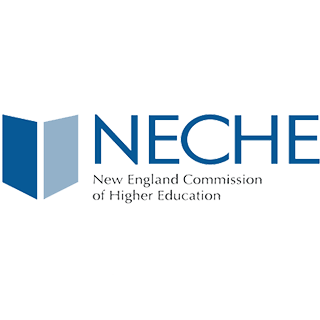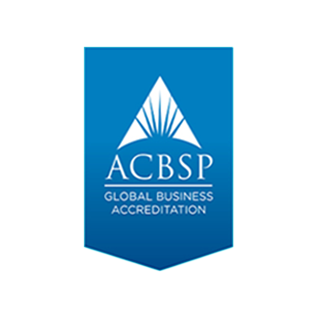For Jazzmen Shipp, Earning a Degree Changed Everything
Business | 2min Read

Great leaders have a common trait: They’re driven to be better leaders. Better problem solvers. Better at leading with mission and purpose. More effective at managing conflict and navigating challenging times. With the online Master of Science (MS) in Organizational Leadership degree program, you'll learn skills to help you take your leadership skills to the next level.
Skills You'll Learn:

Whether you’re in a leadership role now or preparing to step up to one, the online MS in Organizational Leadership program lays the groundwork you’ll need to succeed. You’ll learn to lead individuals, teams and organizations; become adept at setting strategic goals; manage shifts in organizational structure; and gain the expertise to move business forward in times of change. The skills and insights you’ll acquire through this program can help you master best leadership practices — so you can feel ready to apply it in the workplace.
Whether you aspire to be an HR manager, a nonprofit administrator, a corporate manager or a small business owner, the master’s in organizational leadership was designed with your goals in mind. SNHU’s program offers a balanced blend of theory and practice. Throughout your program, you’ll develop your leadership skills through real-world learning experiences.
Visit the course catalog to view the full MS in Organizational Leadership curriculum.
Minimum Specifications:
Additional Information:
Looking to grow your leadership skills as a human resources professional? When you enroll in SNHU's organizational leadership master's program, you can choose to:
Our no-commitment application can help you decide if SNHU is the right college for you and your career goals. Apply up until 2 days before the term starts!
Upcoming term starts: July 6, 2026 | September 21, 2026
Attending college online at SNHU can be a life-changing experience. In fact, 93.4% of online students would recommend SNHU according to a 2025 survey with 8,718 respondents.
Our faculty members bring years of experience to the online classroom. Leveraging their knowledge and skills in organizational leadership, they connect theoretical concepts with real-life situations, allowing you to understand how scenarios play out in today's workforce.
Dr. Linda Ellington is an associate dean of online business programs at SNHU and an associate editor for the International Journal of Adult Vocational Education and Technology (IJAVET); as well as a peer reviewer for many international journals and books. She has extensive experience in faculty development, curriculum design and delivery of those designs.
Position
Associate Dean, Business
Joined SNHU
2014
Education
"While academics are important, do not forget to have fun and enjoy the experiences. Seek help when needed. If you are struggling, do not hesitate to reach out to professors, academic advisors and other opportunities available to you at SNHU. Asking for help is a sign of strength, not weakness."

“The MS in Organizational Leadership provides an opportunity to examine leadership, change management and corporate social responsibility from a theoretic and practical perspective."
Dr. Jennifer Varney, associate vice president, academic effectiveness & instructor experience at SNHU
You’ll take your courses within SNHU’s Brightspace platform. This is where you’ll find your:

At Southern New Hampshire University, you'll have access to a powerful network of more than 400,000 students, alumni and staff that can help support you long after graduation. Our instructors offer relevant, real-world expertise to help you understand and navigate the field. Plus, with our growing, nationwide alumni network, you'll have the potential to tap into a number of internship and career opportunities.
Recently, SNHU has been nationally recognized for leading the way toward more innovative, affordable and achievable education:
Founded in 1932, Southern New Hampshire University is a private, nonprofit institution with over 250,000 graduates across the country. SNHU is accredited by the regional accreditor New England Commission of Higher Education (NECHE), which advocates for institutional improvement and public assurance of quality.
No application fee. No test scores. And no college essay. Just a simple form with basic information. It’s another way SNHU helps you reach your goals sooner.
It's easy, fast and free.
Whether you're applying for an undergraduate or graduate degree, you’ll fill out a form to verify your previous education experience. As part of our admissions process, we'll help you request transcripts from your previous school(s) to see if you can transfer any credits into your SNHU program! (Also for free!)
After reviewing your official evaluation, you can decide if SNHU is right for you! If you choose to enroll, just pick your start date and get ready for classes to begin.
Talk to an admission counselor: 888.327.SNHU | enroll@snhu.edu
SNHU is accredited by the regional accreditor the New England Commission of Higher Education (NECHE). The university also carries specialized accreditations for some programs.
This program and its concentrations are accredited by the Accreditation Council for Business Schools and Programs (ACBSP). Student achievement data can be found on the ACBSP accreditation page.


As a nonprofit university, SNHU offers some of the lowest online tuition rates in the country. And when you work with our Financial Services team, we'll explore ways to help you save even more on your education – and customize a payment plan that works for you.
*before previously earned credits are applied
Tuition rates are subject to change and are reviewed annually.
**Note: Students receiving this rate are not eligible for additional discounts.
Additional costs: Course materials vary by course.
If 3 of your prior learning credits ($659/credit) are accepted toward your master’s degree.
Your remaining tuition cost: $21,747
If 6 of your prior learning credits ($659/credit) are accepted toward your master’s degree.
Your remaining tuition cost: $19,770
If 9 of your prior learning credits ($659/credit) are accepted toward your master’s degree.
Your remaining tuition cost: $17,793
If 12 of your prior learning credits ($659/credit) are accepted toward your master’s degree.
Your remaining tuition cost: $15,816
How we estimate your tuition cost:
We look at the cost per credit multiplied by the number of credits you need to earn for a master's degree. Most master's degrees require 36 credits. SNHU allows you to transfer in up to 12 credits, requiring a minimum of 24 credits to be taken at SNHU. This is only a tuition estimator and doesn't account for other fees that may be associated with your program of choice.
Transfer credits toward your master's degree program at SNHU. If you’ve taken one course or many, we’ll evaluate them for you.
Fill out the FAFSA to see if you’re eligible for grants or work-study. (You could also be offered loans, though you’ll have to pay those back later.)
Earn credits in leadership, technology and more – while taking advantage of an online graduate tuition discount for active-duty service members and spouses.
Getting free money for college – from SNHU or an outside organization – could help you save hundreds or even thousands of dollars.
Bring in credits from popular options like CLEP, Sophia Learning, Google and other common credit for prior learning (CPL) experiences.
Learn how you can save money with tuition reimbursement from your employer.
Take advantage of an online tuition discount through your organization’s partnership with SNHU. Check with your employer to see if your organization partners with us and if you’re eligible for additional tuition savings and partner education benefits.
In the face of ever-evolving market forces, organizations across industries support the development of leadership skills in all their employees. With an online MS in Organizational Leadership, you'll gain skills that can help prepare you to lead in any number of roles.
Leadership skills are vital for all members of an organization, from top-level executives to individual contributors. Organizations of all types need effective leaders and continue to invest in developing and supporting leadership skills.
By pursuing the MS in Organizational Leadership, you'll be making a lifelong investment in your own professional growth. You’ll develop skills in leadership, communication, problem solving and teamwork — fundamental job skills sought after by employers in every industry.
The online MS in Organizational Leadership is designed to meet the needs of today’s workforce. With advanced knowledge in change management strategies and applications to real-world problems, along with corporate social responsibility policies and practices for immediate implementation, you'll be prepared to work in a number of settings including:
Plan, coordinate and direct the administrative functions of an organization, in addition to overseeing the recruiting, interviewing and hiring of new staff.
Plan programs to generate interest in products or services, collaborating with art directors, advertising sales agents and financial staff members along the way.
Plan, direct, and coordinate medical and health services, adapting as needed to changes in healthcare laws, regulations and technology.
Coordinate and supervise programs that support public well-being, in addition to directing workers who provide these services to the public.
Oversee operations, coordinate curriculums, manage staff and provide a safe and productive learning environment for students.
Supervise the operations of manufacturing, as well as coordinate, plan and direct activities involved in creating a range of goods.
According to the U.S. Bureau of Labor Statistics, employment for training and development managers is projected to grow 6% nationally through 2032.
According to the U.S. Bureau of Labor Statistics, the 2023 median annual salary nationally for training and development managers was $125,040.1 Statistic not based on wage data for SNHU graduates.
Understanding the numbers
When reviewing job growth and salary information, it’s important to remember that actual numbers can vary due to many different factors—like years of experience in the role, industry of employment, geographic location, worker skill and economic conditions. Cited projections are based on Bureau of Labor Statistics data, not on SNHU graduate outcomes, and do not guarantee actual salary or job growth.

Organizational leadership is a management approach in which leaders help set strategic goals for the organization while motivating staff to successfully achieve those goals. Think of organizational leadership as having two fundamental components – the organization and the leader.
What makes an organizational leader different from, say, a department manager?
Organizational leaders understand the business, for one.
Organizational leaders know business and their unique role. Dr. Linda Ellington, an associate dean of SNHU's online business programs, said they need to look ahead and be able to envision the organization’s future. They need to have integrity and ethics. They also need to be able to lead large initiatives.

Deborah Gogliettino, an associate dean at SNHU, believes that organizational leadership is a must for anyone whose goal is to help shape an organization’s future.
That describes Nathalie Ojeda '21G well.
"I have always been passionate about helping others," she said. "I challenge myself to make sure I create a positive change in anything I do or create support for someone else. ... (This program) allows students to focus on creating leaders in today’s world by focusing on communication and growth while teaching how to overcome change and adversity in a fast-paced environment."
Organizational leaders bring a lot to a business. Some of the skills they contribute include:
Dr. Linda Ellington, an associate dean of SNHU's online business programs, describes the importance of organizational leadership this way: “An OL has the ability to look wider and deeper and to bring an advanced skill set to a company’s decision-making and strategic thinking.”
Deborah Gogliettino, another associate dean at SNHU, points out that organizational leaders can take the form of everything from an HR manager to a small business owner. Essentially, she said, it all boils down to one fundamental question: “Does this job or position help the organization move forward?”
That's all Willie Wingfield '21G wants to do with his career.
"My MS degree has prepared me to understand and drive change in my current role, as well as appreciate the steps necessary to gain support to create momentum for change," he said. "The degree has created opportunities for me to achieve my current role that supports change and talent development."
It’s a great degree! It’s not only practical and versatile, but it also builds a skill set every organization needs.

"The organizational leadership focus has greatly benefited my role as a leader in the field of behavioral health, therapy and education," said Chase Thomas '21G. "Also, one of my goals long term is to have my own business, so this program has helped me with that."
As organizations in every industry try to navigate turbulent times, the need for effective leaders at every level continues to grow. Experts in organizational leadership can play a pivotal role in managing change. They can also help implement internal leadership development programs. The skills and insights you’ll acquire through the master’s in leadership will help you take on these critical roles.

“We live in a world that is constantly changing," said Jeff Warner, SNHU adjunct faculty member and organizational leadership instructor. "My advice to students is to be curious, listen, observe, keep an open mind and never stop loving to learn something new."
Those are just a few of the hallmarks of great leaders that the master’s in organizational leadership helps cultivate.
The MBA and the MS Organizational Leadership are both great degrees, and which one is better depends on your goals.
The MBA offers a holistic business degree. If you want to sharpen your acumen in areas like business analytics, finance, marketing, operations or entrepreneurship, the MBA is a good choice.
On the other hand, the master's in organizational leadership focuses on strategic organizational leadership practices. You'll explore topics like human behavior, change management and responsible corporate leadership, all while developing your skills in communication, problem-solving and management. That said, if you're looking to build your leadership skills in order to manage a team, department or even an entire organization, the MS Organizational Leadership might be a better choice for you.
Learn more about the advantages of an online master's in organizational leadership.
Definitely! The master’s in leadership is a highly versatile degree. It’s also adaptable to your specific areas of interest, whether that’s in human resources, nonprofit administration or another specialty.
What’s more, demand for strong, effective leadership remains steady across every industry, especially for those with a master’s degree. The U.S. Bureau of Labor Statistics (BLS) projects 6% job growth for training and development managers through 2032, with a median annual salary of $125,040 in 2023.1 Similarly, BLS projects 5% growth for human resources managers, with a median wage of $136,350 in 2023.1
Deborah Gogliettino, an associate dean at SNHU, believes skilled organizational leaders will always be in demand. “Organizations will always embrace someone who can bring a vision, especially one of growth and sustainability," she said.
Melissa Tilton '14 '21G knows earning her OL degree was worth it.
"The program has me looking at things differently, critically thinking about actions I take before I take them, and also giving me the confidence to do things differently," she said. "As a leader, I know I have more tools in my toolbox to support my team… I can do better for them because of my SNHU education."
Organizational leaders are HR professionals, educators, technologists, leaders in industries such as health care and manufacturing — the list goes on and on.
"What is great about the MS in Organizational Leadership program is its versatility," said Dr. Christina Dumeng, associate dean at Southern New Hampshire University. "For example, whether you want to be in a leadership position, are new to leadership or have extensive leadership experience, this program is designed to serve all levels of one’s profession."
Whether you work in healthcare, technology, education, construction, manufacturing, retail or any other industry, organizational leaders are vital to an organization’s performance. These are just a few of an organizational leader’s main responsibilities:
Debra Crombie '21G said the knowledge she gained in her courses helped her take a leap in her career.
"During the pandemic, my role as VP of Talent Development was eliminated," she said. "Because of my degree, I had the confidence to start my own training company and used the tools I learned in my Entrepreneurship and Small Business Management class to write a business plan to get that ball rolling."
The master’s in organizational leadership prepares you for a wide variety of roles, including:
If you’re looking to move up to a management role, this degree can help build a valuable set of skills and knowledge. The same goes for mid-management employees seeking to advance to senior leadership levels.
Read more: 10 Qualities of a Good Leader
1Bureau of Labor Statistics, U.S. Department of Labor, Occupational Outlook Handbook, on the internet, at:
Cited projections may not reflect local or short-term economic or job conditions and do not guarantee actual job growth.